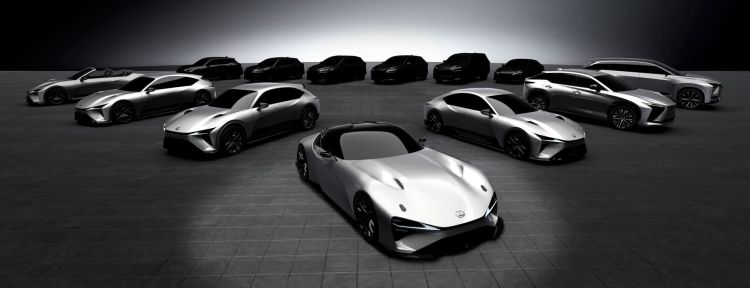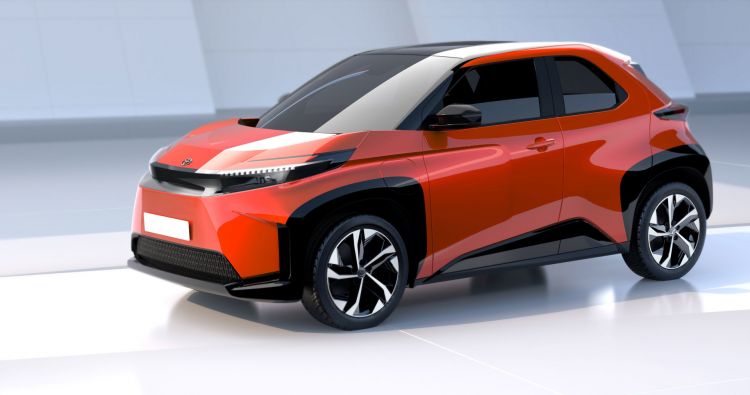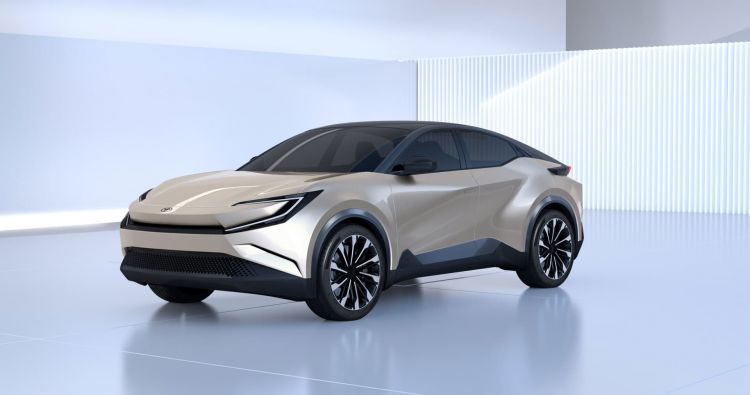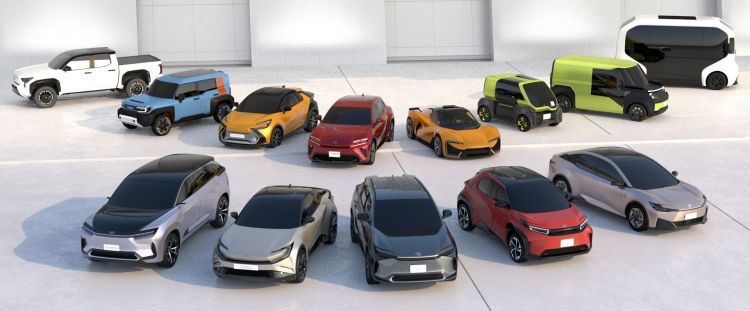Toyota rushes to reset its EV strategy with an eye on Tesla. So says the headline with which Reuters launched one of the exclusives, in our opinion, the most interesting and important in recent weeks, pointing directly to the transition to the electric car.
Just ten months ago, we echoed Toyota’s ambitious electric vehicle plan. And we did it with a no less illuminating headline. Despite being the manufacturer that has promoted the most, and still continues to do so, with its hybrids, the electrification of the car, Toyota had been slow to present its all-electric vehicle offensive. Necessarily, Toyota should be in store for some surprises in this regard. And that’s why, back in December, the presentation of its strategy would be worthy of affirming that Toyota had revealed that its ace in the hole was a whole deck.
It is not for less. Toyota announced the launch of 30 fully electric cars by 2030. By then, Toyota expected to sell 3.5 million electric cars a year and Lexus about a million, selling only electric cars in Europe, North America and China.
In December, we affirmed that Toyota had revealed that its ace in the hole was quite a deck, ten months later the Japanese brand could be rethinking its electric vehicle strategy
Reinventing Toyota’s electric strategy
According to the Reuters exclusive, Toyota would be considering completely overhauling its electric vehicle strategy. Reuters mentions, of course without explicitly citing, the number of sources that would have been aware of these plans, noting that there would be different departments and, above all, many brand employees informed of this review of the strategy. He also mentions documents to which he would have had access and that the revision of the strategy would have involved momentarily stopping the project related to the 30 electric cars announced in December, at least until a decision is made at the beginning of next year.
The move should not have any consequences for products that are already present on the market, based on the e-TNGA platform that will give or give life to this entire catalog of electrical products, for now, the Lexus RZ and the Toyota bZ4X. Without going any further, yesterday Toyota announced the launch of a new electric based on the e-TNGA platform, the Toyota bZ3, initially intended for China and developed in collaboration with BYD.
The movement, on the other hand, should not necessarily mean discarding the e-TNGA platform and, therefore, all the developments that have been advanced in recent years. But from the conclusions reached in 2023, the shortening of the cycle of this platform could come out and allocate resources to an even more ambitious project for the next generation electrics.
According to Reuters, Toyota would be rethinking its electric strategy, having momentarily paralyzed developments until reaching a conclusion in this regard in early 2023.
A critical time for automakers
The reasons why Toyota would be rethinking its electric strategy, according to this information, are essentially two. The first, that the global electric sales forecast in 2030 are now higher than those initially estimated. The second, and perhaps the most interesting, is that Toyota is considering that in order to be competitive in the electric vehicle market in 2030 they will have to undertake deeper changes in the strategy announced in December, but also in the very way of building cars.
Reuters points squarely at Tesla as the benchmark. Not only because of the evolution of its sales but above all because of the advances that this very young manufacturer has made at an industrial level, to scale up production and, above all, to achieve more efficient and economical production in order to have more competitive products. .
The e-TNGA platform has been conceived to produce internal combustion – hybrid – and electric vehicles on the same line and with some adaptations it would continue to be key to Toyota’s electric strategy in the coming years. But Toyota could already be thinking about a more ambitious plan, in higher volumes of electrics and in a more competitive position, which would go through completely review the electric vehicle production process with specific lines and technologies for them.
Toyota could rethink the strategy of producing electric vehicles of the e-TNGA together with hybrid vehicles, to completely review the production process of electric vehicles
The great challenges facing Toyota and the rest of the industry
In recent months we have been aware, as never before, of the great challenges facing the automotive industry and traditional manufacturers, which goes beyond the transition to the electric car and the pressure of environmental regulations. The Paris Salon was the launch of a whole wave of products made in China, by Chinese brandswhich have not only highlighted that they will be able to compete, by cost, with Western electric vehicles, but also offer high quality products, at very competitive prices, targeting Tesla, general and premium manufacturers.
We are witnessing a time when the traditional general manufacturers are abandoning the cheapest product and how new brands and products are arriving that occupy that place, with reasonable and cheap products. We are also seeing how, with the transition to electric, they try to occupy premium positions, with higher quality, but also price. And also how a flood of products arrives from China that are not only capable of offering products with premium positioning, but also of doing so at prices impossible for traditional brands.
The question we should ask ourselves therefore might not be why Toyota is rethinking its strategy, but what the rest of the manufacturers are doing to face this challenge..
Regardless of the result of the reflection that Toyota arrives at, the approach that the Japanese would be making according to this information and trying to correct the course seems correct and timely. And regardless of what is happening in its electric strategy, Toyota has a bright present and future paying off all the effort it has put into hybrids in the last two decades.
In Spain, in fact, Toyota lives its sweet moment. In the year to date, Toyota leads the Spanish market, not only being the best-selling brand, but also having two of its cars among the best-selling in Spain. Among the 10 best-selling non-plug-in hybrids in Spain, which already represent a quarter of the Spanish market, Toyota has four models.








